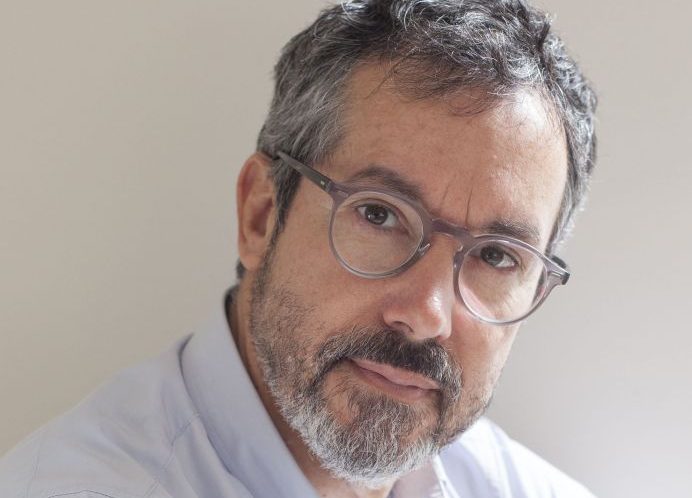Brazil, Literature, 2011
Bernardo
Carvalho
Before he began creating the worlds of novels, Bernardo Carvalho explored the world with the inquiring gaze of a journalist. Born in 1960 in Rio de Janeiro, in the early 1990s he worked in Paris and New York as a foreign correspondent for the Brazilian daily newspaper Folha de São Paulo. When his post was eliminated due to the Brazilian economic crisis, he decided to stay on in New York for a few more months and to use the borrowed time to take his first literary steps, which would soon lead him to his goal.
His 1993 debut, a collection of stories entitled “Aberração,” was immediately nominated for the country’s most prestigious literary prize. What appear in this collection are leitmotifs, which, in countless variations, move through his following nine books, all of them novels: secrets to be exposed, past events pervaded by the present, poetry and truth inextricably intertwined with one another, and a game played with diverse perspectives and identities. Whoever reads a novel by Bernardo Carvalho inevitably becomes a detective in the process. To an extent, the author himself is written into the text: his first-person narrators are often hindered writers who, through a series of unusual events, still manage to become writers or, as the case may be, chroniclers and minute-keepers of stories learned through a third party. The unfathomable, labyrinthine, and overlapping elements in Carvalho’s books have attracted a comparison to Borges, a comparison Carvalho modestly denies is true.
Unlike in France, where Carvalho’s works were translated all along, German readers had to wait until 2006, when his fifth novel, Nove Noites (Nine Nights), aided his international breakthrough. This fictional work is based on a true story, namely the fate of the young American anthropologist Buell Quain, who, during a 1939 research project carried out among the endangered Krahô Indians in the Brazilian jungle, took his own life for inexplicable reasons and in the most gruesome manner. Around sixty years later, a Brazilian journalist with a strong resemblance to the anthropologist, Bernardo Carvalho, searching for evidence and traces of the suicide victim, travels down the Xingu River in order to reconstruct Quain’s last days and nights. During his search for clues, newer questions are constantly raised, and the searcher on a personal journey into the heart of darkness, a zone also the stage for his own childhood, learns more about himself. This riveting blend of documentary travelogue, short history of anthropology, and adventure story was awarded two of the most renowned prizes for Portuguese literature.
The next novel, Mongólia, leads a Brazilian diplomat from Shanghai through Peking and into Mongolia against his will. As someone the natives call the “Westler,” his secret mission is to establish the whereabouts of a young Brazilian photographer who vanished without a trace. What connects the man searching to the one being sought is not revealed until the very end. However, by then the diplomat is dead, a victim of the sort of violent crime a part of everyday life in Rio de Janeiro, and his former superior, meanwhile retired, reconstructs the story using the diary entries of the Westler and the photographer. The encounter with this utterly foreign culture is largely defined by misunderstanding and suspicion. Natural wonders, the shadier side of Tibetan-Mongolian Buddhism, and assorted Communist atrocities are equally depicted in a manner as tangible as instructive. And what makes conducting the search so difficult is that tracks are almost instantly obliterated in the Mongolian expanses: “I ask about the cloister. They have no idea… No one knows anything about any place. They’ve learned to stay out of everyone’s affairs. The past, insofar as it’s not totally lost, consists merely of sagas and hazy conjectures. So now, to remember is to imagine.”
For Carvalho, even the physical experiencing of the foreign is an essential part of the writing process. In a 2008 interview with the art magazine Bomb, he stated: “The trips I took prior to my most recent books were provocations of the experience. I deliberately put myself in a place vulnerable to experience (…) I don’t control what’s going to happen to me; I don’t have a hold over the real. But what’s incredible is that things happen and, surprisingly, everything converges toward the novel, as though the real were conspiring with me. For example, in St. Petersburg, which is a dream city for any tourist, on my third day I was the victim of an attempted robbery. That greatly influenced the way I began to see the city, as a nightmare, which is an image much more appropriate for the story and the characters than what I had in mind even before arriving here.”
O Filho da Mãe, the novel which owes its development to this stay, is currently being completed in German by Carvalho’s regular translator, Karin von Schweder-Schreiner. Now, after the author has abducted us to the Amazons, China, Mongolia, and Japan, we win a new perspective on the struggle of the mothers of Russian soldiers and the fate of Chechen refugees. In Bernardo Carvalho’s fictional universe, there is enough room for the whole world – to appear in more than one form.
Nine Nights. Novel. Translated from Brazilian Portuguese by Karin von Schweder-Schreiner. Published by Luchterhand Literaturverlag, Munich, 2006
Mongólia. Novel. Translated from Brazilian Portuguese by Karin von Schweder-Schreiner. Published by Luchterhand Literaturverlag, Munich, 2007
O sol se poe em São Paulo (The Sun Sets In São Paulo). Novel. Translated from Brazilian Portuguese by Karin von Schweder-Schreiner. Published by Luchterhand Literaturverlag, Munich, 2009



